- Home
- Simon Winchester
Bomb, Book and Compass Page 5
Bomb, Book and Compass Read online
Page 5
From what she had read in the technical journals – not least the reviews of his stunning three-volume study of embryology – she knew well to admire Joseph Needham’s scientific work. She also knew that Dorothy Needham was in her own right an expert in the same field of muscle biochemistry as Gwei-djen. So for purely scientific reasons, Cambridge was the obvious place for her to go.
But there was more to it than the quality of the science. Politics and political sympathy also played a part in her decision. From what she had read in those imported British newspapers and political weeklies that made their way to Shanghai, Lu Gwei-djen also knew that Joseph Needham was a prominent and eager member of the political left and so was very much in step with her own political ideals. Moreover, the vast range of his interests suggested that he was something of a Renaissance man, and she knew that the press had suggested he might be regarded as a latter-day Erasmus.
She had read of his interest in the Spanish civil war, an event that had especially captured the imagination of many of the young and more radical Chinese. She herself had wanted to contribute her mite to the Cornford— McLaurin Fund. The thought that these two promising young men had braved so much, and then had lost their lives to a cause that was so clearly good, was to her intensely romantic; and those who supported the fund – as she knew Joseph Needham had – must, she felt, be thoroughly admirable.
Lu Gwei-djen, the brilliant young biochemist from Nanjing, in a formal portrait taken in 1937 shortly before she left China for Cambridge, and a life as Needham’s mistress and muse.
Her plan was to pursue a field of biochemical research that was then virtually unknown in China, so impoverished and troubled were the country’s universities. Though a number of other universities around the world, particularly those in America, offered her places and opportunities, she wanted most of all to go to England. Her keenest ambition was to work at Sir Frederick Hopkins’s now world-renowned Biochemistry Institute, and perhaps while there to make contact with these two scientists who had become her faraway heroes.
The merit of her own work was all too evident, and on seeing her curriculum vitae Hopkins accepted her application in a flash. Dorothy Needham, to whom the professor had then passed her letter, agreed readily to help her as an adviser, and perhaps even to become her academic supervisor.
Lu Gwei-djen had been born on 22 July 1904, into a highly regarded Christian family. The first character of her given name, , was chosen to signify the sweet-smelling osmanthus tree that blooms in eastern China in July, the month of her birth; and the second, , signifies treasure, a thing of great value. As an infant she was plump, active, and widely adored – but her life got off to a shaky start, thanks to the civil wars raging across eastern China, and her family was forced to evacuate to Shanghai to get away from the battles being fought around Nanjing. She did not begin her formal education until she was nine, when the situation calmed down enough for her to go home.
She had started out as a rebellious and archly nationalistic child – as a teenager she had insisted to her friends that she would never learn English, and that those Chinese who did so were no better than ‘traitors and fools’. But then in 1922 she won a coveted place at a newly built American-run college that would soon be famous – Nanjing’s Ginling College for Girls, the ‘little sister in the Orient’ of Smith College in Massachusetts.
Under the soothing ministrations of this liberal American education, Lu Gwei-djen began to mellow. Within no more than a few months her early anger had all dissipated. She swiftly became fascinated by English, and within a year was fluent in it. She took up the piano with gusto. She studied – ‘with an intense desire’, she recounted later – though her early choices of mathematics, religion, English, and hygiene slowly gave way to an all- science curriculum. She began this with the study of zoology and botany, before finally developing a keen interest in biochemistry and in particular the study of the mechanics of animal muscles.
She boarded a steamer at Shanghai in the early summer of 1937 Two other young scientists accompanied her – Shen Shizhang, who after studying with Needham went on to become a professor of zoology at Yale; and Wang Yinglai, who won fame by being the first to create synthetic insulin. The crossing from the Yangzi to the Thames took two months; their ship docked in London in late August.
After a first night in a cheap hotel in London the three took the train to Cambridge and found their digs, a small flat conveniently close to the railway station. From here it was just a short walk to Tennis Court Road and the renowned Biochemistry Institute. Sir Frederick Hopkins, his seventy-six years now very much showing in his evident frailty and his snow-white moustache, was on hand to greet them; and Dorothy Needham took them to their rooms.
Lu Gwei-djen remembered very well her first meeting, later that same day, with Joseph Needham. She recalled walking down the hall to his room, then knocking gently on the wooden door. She was excited, after months of anticipation. She imagined, she later wrote, that she would now meet ‘an old man with a bushy white beard’.
She could not have been more wrong: instead of the hare-eyed boffin she expected, there stood before her ‘a young dark-haired biochemist, breathless from running from place to place and clad in a plain white overall with many holes caused by the acid of bench experiments’. He was handsome, in a studious way. He was very tall, muscular, rangy. He wore tortoiseshell-framed glasses, and a shock of hair kept falling over his forehead, which he brushed back with his hand from time to time. His voice was strong, but it had a silkiness, almost a lisp, that she found instantly captivating.
‘I had absolutely no idea,’ she wrote later, ‘that the presence of my colleagues and myself would have earthshaking effects on Joseph Needham, for whom I supposed we would be no more interesting than any other research students working for their doctorates, and no more. But between us and Joseph Needham a strange magnetic force developed.
‘As he afterwards wrote, the more he got to know us, the more exactly like himself in scientific grasp and intellectual penetration he found us to be; and this led his inquisitive mind to wonder why therefore had modern science originated only in the western world? Much later on, after he and I had started investigating Chinese history, a second question presented itself – namely why, during the previous fourteen centuries, had China been so much more successful than Europe in acquiring knowledge of natural phenomena, and using it for human benefit? Such were the mainsprings of the Science and Civilisation in China project.’
The ‘magnetic force’ was directed much more particularly at Lu Gwei-djen than at the other two, and she was being tactfully disingenuous in saying otherwise. For there was little doubt: she arrived in late August; she took a room across the corridor from Needham; and, during the autumn and winter of 1937 and 1938, the two of them fell headlong and hopelessly in love.
Needham’s diaries record it all: the suppers in town, maybe at their favourite Indian restaurant, or maybe at the Venetian, which was then the best Italian place in Cambridge; the evenings at the pictures (The Good Earth had just arrived, and Sidney Franklin’s rendering of Pearl Buck’s epic novel offered Gwei-djen a chance to wallow in homesickness and nostalgia, and to weep); the arm- in- arm walks along the snowbound Backs, or down to Grantchester along the frozen riverbank; the brief holiday in France, in Avallon.
Dorothy Needham knew full well what was happening, not least because neither Joseph nor Gwei-djen made any secret of their affection for each other. She was entirely complaisant, uncomplaining both in public and in her diaries, to herself. During that winter the three often went out together as friends and colleagues – they had much science in common to discuss, after all, and Joseph and Dorothy both enjoyed introducing their visitor from China to the engaging minutiae of Cambridge life. As winter took hold in Cambridge, the three spent much time huddled in front of the glowing coke fire in their local pub. And by all accounts, and to judge from Dorothy’s private letters, she very much liked Gwei-djen, and admired her
intelligence, her determination, and her spirit.
And the liking did not appear in any way diminished when Gwei-djen finally became her husband’s mistress.
It was a good six months after Joseph Needham and Lu Gwei-djen first met that matters took this more decisive turn. Most probably, this happened late one damp evening in February 1938, in K-1, his cosy little room in Caius College in the gaslit centre of Cambridge. The epiphany that is most relevant to this story is more linguistic than erotic, however. It occurred as the couple lay together in his cramped single bed in that sixteenth-century room, smoking companionably.
As they lay there, quite content, all was just as normal as such circumstances permit. Perhaps there might in due course be some kind of scandale, but this was the 1930s, and the event had occurred in Cambridge, and the parties involved – not least Dorothy Needham, who had gone away briefly to visit her family in Devon – and the university circles in which they all moved were socially progressive and sexually tolerant.
Needham’s university diary of the time makes it possible to imagine the scene in some detail: the couple’s energies being spent, it appears that Needham first lit two cigarettes, as was his habit – probably of his usual brand, Player’s – and he handed one to Gwei-djen. He then turned on his pillow to face his mistress beside him. We can imagine that he smiled at her, tapped on the cigarette, and asked simply: ‘Would you show me just how you write the name of this – in Chinese?’
And, as the diary illustrates, she did indeed show him. Under her invigilation he then wrote on his diary page (and only a little haltingly, for his always had been and always would be a most precise hand) the Chinese character for cigarette – two separate components, nineteen strokes of the pen, and all signifying something that he realized was infinitely more lovely in its construction than its banal equivalent Anglicism: fragrant smoke.
He lay back, admiring his work. It was the first time he had ever written anything in the language of these people, alien and very far away – and when he did so, a distant door suddenly started to open for him, onto an utterly unfamiliar world.
‘It was very sudden,’ Gwei-djen remembered. ‘He said to me: I must learn this language – or bust!’ She was to be his first teacher, he demanded, urgently. And she agreed, readily: ‘How could I refrain from helping him to learn it, even though it was a little like going back to the nursery to receive, and reply to, his artless Chinese letters? But little by little he gained the knowledge he sought, and was launched on the way to understanding Chinese texts of all ages.’
Years later Gwei-djen reflected on Needham’s sudden but very real enthusiasm for Chinese, coming when he was at the top of his game as one of the world’s leading biochemists. ‘He was not a professional sinologist who had gone through the mill of formal academic teaching in Chinese,’ she wrote. ‘Nor was he a conventional historian, nor had he any formal training in the history of science; he had just picked it up in the way that broadly enquiring Cambridge undergraduates were always encouraged to do, while in the course of doing something else – in his case anatomy, physiology, and chemistry.’
Cigarette
Gwei-djen had never taught before, but she knew from friends the first essential step. In order to commingle her pupil’s identity with his linguistic passion, and thus more effectively bind him to the wheel, she gave him a carefully chosen Chinese name.
Usually Chinese names have three components or three syllables, signified invariably by three characters,7 with the single-character family name first, followed by the two given names – for example, Mao Zedong, Zhou Enlai, Chiang Kai-shek. Gwei-djen saw no reason not to follow convention. She gave him the family name Li, and the given names Yue-se. The Chinese character li, can mean plum but is usually a surname. Gwei-djen chose it because she felt it was similar in sound to the first syllable of his English surname, Needham. She also chose his given names for the way they sounded – Yue-se sounded, she thought, like Joseph. In any case, Yue-se had been the standard transliteration of Joseph since the time of the Jesuit missionaries in the 1600s.
The character yue, , indicates appointment or arrangement; the character se, , signifies a musical instrument resembling a zither. Arrangement-zither Plum would be a strange name in English; but to a Chinese, Li Yue-se is both sonorous and dignified, a name that could belong only to a scholar. Learning to write, read, and say it on command turned out to be Joseph Needham’s Lesson One and would often be repeated in his early study of the Nanjing-inflected dialect of pure Mandarin Chinese.
Li Yue-se
He was a good student, and he set about his studies in a methodical but unique way. He created, entirely from scratch, a series of homemade notebooks to be his vade-mecums. There were eventually dozens of them, but initially he made just three: the first was an English— Chinese dictionary, the second a Chinese grammar, the third a Chinese phrase book. Slogging along day after day, with an obsession that, as he became ever more deeply immersed in it, made him by his own account ‘almost delirious with happiness’, he filled in these notebooks, word after word, sound after sound, character after character. The total entries became scores, then hundreds, and finally the 5,000 or 6,000 that are considered necessary for full literacy in the language.
He organized some of the books in a fairly conventional way. His dictionary, for instance, has an index that he made himself, with hundreds of English words cross-referenced either by the way they are pronounced in Chinese or by the radical with which the written Chinese symbol begins. (Some might think that the first words for which he chose to learn the Chinese are subtly illustrative: his first index for words starting with the letter v, for example, contains only vagina, value, vanish, vegetable, venture, very, victory, village, virgin, virtue, viscera, voice and vulgar. An early page devoted to a has just the words ability, add up, affair, age, allow and apologies.
He also drew up a series of complex, beautifully logical tables to display the various Chinese suffixes – one page of his dictionary is devoted to those that are basically pronounced like -ien; another page is devoted to those ending in -iao; and so on. To accompany these he drew four columns alongside each entry, one for each of the four basic tones of central Chinese speech. Once this was done, all he had to do was add a first letter – m to produce mien, say; or t for tien; m for miao or t for tiao – and then write in each of the columns what each tonal variant signified in English.
His matrix would then show that mien, when pronounced with the first flat tone, means abolish; that mien pronounced with the second rising tone means cotton; and that mien with the falling fourth tone means face or bread. Tien pronounced with the first tone means heaven (as in Tienanmen Square – the Square of the Gate of Heavenly Peace); tien with the second tone means field, or sweet; and tien in the fourth tone means electricity.8 So impeccable and comprehensive is the organization of this particular series of books that they could be used today as teaching aids.
The organization of some of his other books, however, shows Needham at his eccentric best. He constructed a second small Chinese dictionary that dealt neatly, if very unusually, with the 214 very basic Chinese characters called radicals. These fairly simple characters – most are made up of fewer than six strokes; those in the largest group are composed of only four – are designed to show the roots of various Chinese concepts, and they are placed usually to the left of (or less frequently above, below, or to the right of) other characters, so that the combined package makes up the intended, totally new word.
Usually a Chinese dictionary arranges these radicals in order of their complexity – listing those made with one stroke first; followed by those with two strokes; then by those with three, four, five, and so on. Needham realized that with his nearly infallible photographic memory he would be better served by a dictionary that arranged the radicals by the direction and shape of the strokes – putting all radicals that had vertical strokes on one page, all those with strokes that veer to the left on another, and so on
. This was a highly eccentric way to do it – and no Chinese lexicographer or textbook author has seen fit to copy Needham’s model – but it evidently worked for him.
This was the Joseph Needham – bespectacled, tousle-haired, scientifically obsessed – who so enchanted Lu Gwei-djen when they met in Cambridge in the late summer of 1937.
He ploughed on like this throughout the spring and summer of 1938 – labouring during the daytime at his biochemistry, teaching with his usual eager flamboyance, continuing to present well-received papers to the technical journals, and then, once all his official university duties were discharged, reverting to his newfound intellectual passion. Late into each night he could be seen poring over his dictionary, a pool of light the only illumination in his room, a furiously scratching pencil the only sound, strands of blue cigarette smoke coiling up into the darkness.
By the time autumn had settled on the city, Lu Gwei-djen realized that her lover was well on the way to being fluent and usefully literate. It was a formidable achievement, and the two of them were vastly proud of it. Even Dorothy Needham was sufficiently impressed to offer congratulations, though she spent most of that year and the next sunk deep in her own studies, tactfully keeping out of the way, and pretending not to mind.
But when one is thirty-eight years old, the linguistic corners of the brain are notoriously difficult to penetrate – and at a certain level, in trying to make the leap from simple competence in Chinese to the excellence he demanded, Needham ran into difficulties. He could absorb only so much. Confusion started to trouble him.

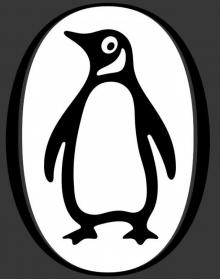 The Surgeon of Crowthorne
The Surgeon of Crowthorne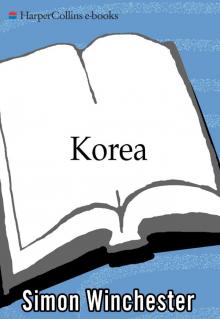 Korea: A Walk Through the Land of Miracles
Korea: A Walk Through the Land of Miracles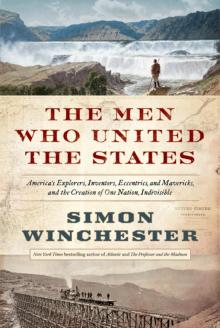 The Men Who United the States: America's Explorers
The Men Who United the States: America's Explorers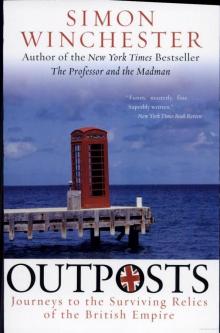 Outposts: Journeys to the Surviving Relics of the British Empire
Outposts: Journeys to the Surviving Relics of the British Empire Atlantic: Great Sea Battles, Heroic Discoveries, Titanic Storms
Atlantic: Great Sea Battles, Heroic Discoveries, Titanic Storms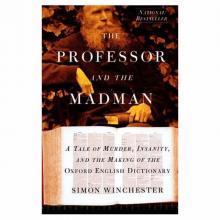 The Professor and the Madman: A Tale of Murder, Insanity
The Professor and the Madman: A Tale of Murder, Insanity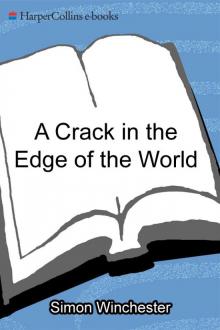 A Crack in the Edge of the World
A Crack in the Edge of the World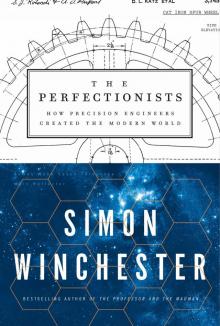 The Perfectionists: How Precision Engineers Created the Modern World
The Perfectionists: How Precision Engineers Created the Modern World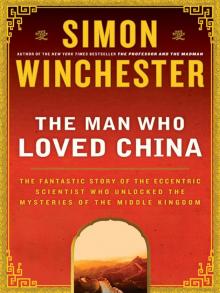 The Man Who Loved China: The Fantastic Story of the Eccentric Scientist
The Man Who Loved China: The Fantastic Story of the Eccentric Scientist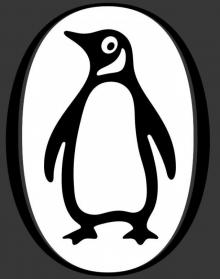 The River at the Center of the World: A Journey Up the Yangtze
The River at the Center of the World: A Journey Up the Yangtze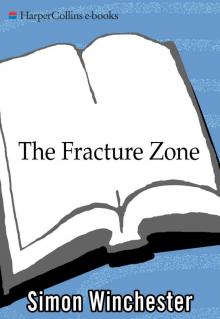 The Fracture Zone: My Return to the Balkans
The Fracture Zone: My Return to the Balkans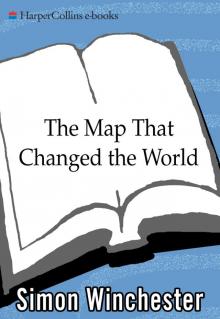 The Map That Changed the World
The Map That Changed the World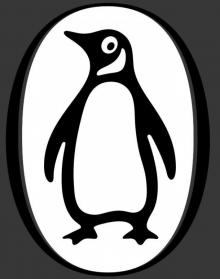 Krakatoa: The Day the World Exploded
Krakatoa: The Day the World Exploded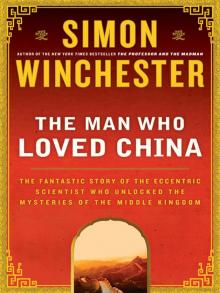 The Man Who Loved China
The Man Who Loved China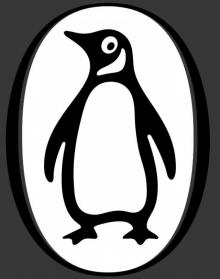 The River at the Centre of the World
The River at the Centre of the World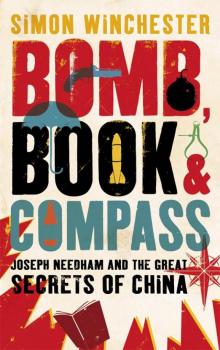 Bomb, Book and Compass
Bomb, Book and Compass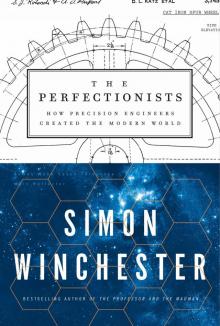 The Perfectionists
The Perfectionists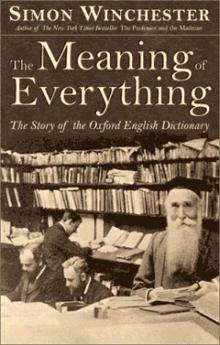 The Meaning of Everything
The Meaning of Everything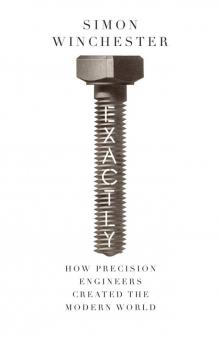 Exactly
Exactly Atlantic
Atlantic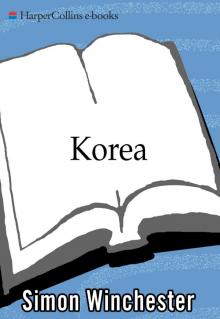 Korea
Korea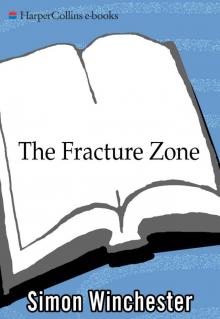 The Fracture Zone
The Fracture Zone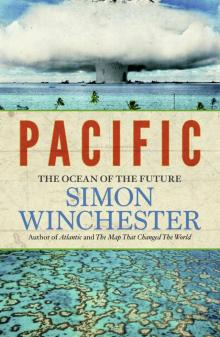 Pacific
Pacific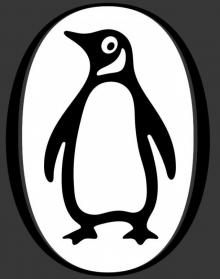 Krakatoa
Krakatoa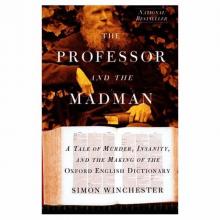 The Professor and the Madman
The Professor and the Madman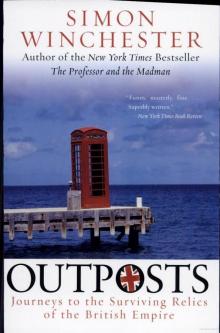 Outposts
Outposts